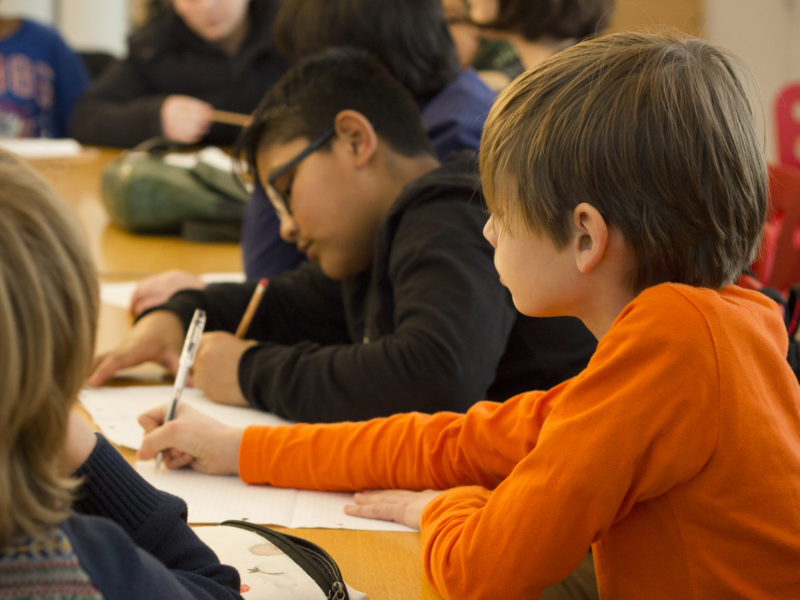In 2015 First Story received a Creative Writing in Schools grant of £600,000 from Arts Council England, alongside our fellow creative writing organisation, Paper Nations. We were thrilled that the grant allowed us to take our flagship creative writing programme into the South West, as well as further expanding our work in the North.
During the three years of the grant, First Story directly served around 3,000 young people, aged 8-14, in areas of high deprivation across the North and South West of England. We place First Story Writers-in-Residence in 65 schools, published over 50 anthologies, and developed and published a First Story Writers’ Guide.
Along with a host of partners, we also designed and launched an ambitious new national platform to promote creative writing in schools: the UK’s first ever National Writing Day.
For the past three years First Story has expanded our reach, placing more writers in schools than we’ve ever done before. The learning from this evaluation will inform how we build upon our network of writers towards making the benefits, and pleasure, of creative writing accessible to as many young people as we can.
Linda Craig, Interim Director at First Story
Arts Council England has released a final report on the outcomes and impact of the grant, written by the independent evaluator, LKMCo. The final report is available here. Its main findings are that:
- Young people and teachers valued writing for the pleasure it gives, rather than for its benefits in improving technical accuracy.
- Creative writing networks played a vital role in bringing writers and schools together, and helping writers share knowledge, resources and opportunities.
- First Story’s programme helped pupils feel more confident as writers, which also increased their confidence in wider school life.
We are delighted that Paper Nations and First Story will be sharing replicable delivery and business models as the legacy of the Creative Writing in Schools programme, to inform, inspire, and support more children and young people to write creatively and for pleasure, in and outside school.
Sarah Crown, Literature Director at Arts Council England
In the coming weeks, we will pull-out and highlight some of the specific recommendations from the report. Key findings and recommendations include:
- Structured support from a professional writer helps build young people’s confidence and overcome initial fears of writing, develop positive relationships with adults and peers, and express themselves more authentically on the page and with their peers.
- Writers enjoy working with young people because they want to pass on their love for writing and value developing their teaching skills, but securing fair pay presents a substantial challenge (while also striving for widespread access to creative writing opportunities for pupils). Greater knowledge and coordination about pay is needed to make creative writing in schools viable in the long run.
- Future work should prioritise involving groups of young people and teachers who are not initially curious about or inclined to get involved in creative writing.
With opportunities for children to write creatively in schools in decline, Paper Nations’ goal was to produce evidence-backed resources to help sustain and expand the culture of support for creative writing. Without partnerships between local and national organisations, our work would not have succeeded. Following on from the recommendations of the LKMco report, we look forward to sharing the resources that we have co-created through this programme.
Bambo Soyinka, Executive Producer, Paper Nations, Bath Spa University


 Robert Webb will present our BBC Radio 4 Appeal
Robert Webb will present our BBC Radio 4 Appeal
